North Africa
North Africa is a cultural subcontinent in the northern part of Africa. It is sometimes defined as extending from the shores of the Atlantic, from Morocco to the west, to the Suez Canal and to the Red Sea, in Egypt to the east. The most commonly accepted definition includes from East to West : Egypt, Sudan (sometimes included in East Africa), Libya, Tunisia, Algeria, Morocco, Western Sahara and Mauritania (often included in West Africa). The United States Census Bureau defines North Africa as Algeria, Libya, Egypt, Morocco and Tunisia. The countries of North Africa share a common ethnic, cultural and linguistic identity specific to this region, such as the language (Arabic), as well as religion (Islam). North Africa has been inhabited by Berbers since the beginning of history, while the eastern part of North Africa was home to the ancient Egyptians, who maintained close relations with the Berbers during antiquity. After the Muslim conquest in the 7th century, the region underwent an Arabization and Islamization process which has since redefined its cultural landscape. The distinction between North Africa and sub-Saharan Africa is historically and ecologically significant due to the natural barrier created by the Sahara Desert for much of modern history. North Africa is populated by Arabs and Berbers, while sub-Saharan Africa is populated by blacks. From 4000-3600 BC. AD, following the abrupt desertification of the Sahara due to gradual changes in Earth’s orbit, this barrier culturally separated the North from the rest of the continent. As the maritime civilizations of the Phoenicians, Greeks, Romans, Muslims and others facilitated communication and migration across the Mediterranean Sea, North African cultures were more closely linked to Southwest Asia and Europe than in sub-Saharan Africa. Islamic influence in the region is also significant, and North Africa is a major part of the Muslim world.
An increasing number of researchers have postulated that North Africa, rather than East Africa, served as a point of exit for modern humans who first left the continent during migration from Africa.
Etymology
North Africa is also called White Africa. This term contrasts with that of “black Africa”, designating sub-Saharan Africa. Georg Wilhelm Friedrich Hegel also called it “European Africa” while Elisha Reclus saw in North Africa an appendage of the Latin Arc. The expression white Africa referred either geographically to the north of the Sahara or, ethnically, to the “white” minorities of “black” Africa : Afrikaners in the south, Tuaregs in the Sahel.
Geography
The Atlas mountains extend over a large part of Morocco, northern Algeria and Tunisia, are part of the fold mountain system which also crosses much of southern Europe. They retreat to the south and east, becoming a steppe landscape before meeting the Sahara Desert, which covers more than 75% of the region. The sediments of the Sahara cover an ancient plateau of crystalline rock, some of which are more than four billion years old. South of the Atlas is the arid and desert expanse of the Sahara Desert, the largest sandy desert in the world. In places, the desert is cut by irregular rivers called wadis (or wadis) which do not run until after the precipitation but are generally dry. The main reliefs of the Sahara include ergs, large seas of sand which sometimes form immense dunes ; the hammada, a flat rocky plateau without soil or sand ; and the reg, a flat surface made up of gravel or small stones. The Sahara covers the southern part of Morocco, Algeria and Tunisia, and most of Libya. Only two regions of Libya are outside the desert : Tripolitania to the northwest and Cyrenaica to the northeast. Most of Egypt is also desert, with the exception of the Nile and the irrigated land along its banks. The Nile Valley forms a narrow fertile streak that spans the entire length of the country. The sheltered valleys in the Atlas Mountains, the Nile Valley and Delta, and the Mediterranean Sea are the main sources of fertile agricultural land. A wide variety of valuable crops, including grains, rice and cotton, and woods such as cedar and cork, are grown. Typical Mediterranean cultures, such as olive, figs, dates and citrus fruits, also thrive in these regions. The Nile Valley is particularly fertile, and most of the population in Egypt lives near the river. Elsewhere, irrigation is essential to improve crop yields on the margins of the desert.
North Africa’s countries
-
- Algeria
- Morocco
- Western Sahara
- Tunisia
- Libya
- Egypt
- Mauritania
-
Morocco
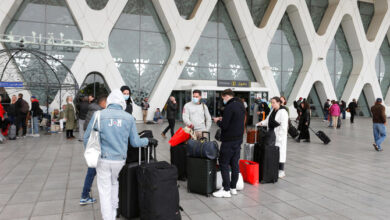
Morocco: Domestic Flights, Public Transport Between Cities To Resume This Week
Morocco is set to resume domestic flights, and public transport between cities starting Thursday, June 25, reported Reuters. The government…
Read More » -
Egypt
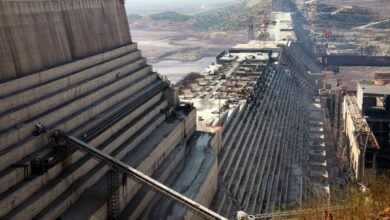
Egypt Heads To United Nations Security Council For A Fair Solution On Nile Dam Issue
Egypt government has approached the United Nations Security Council to intervene to restart negotiation talks With Ethiopia and Sudan on…
Read More » -
Egypt

Egypt Records Highest Number Of Confirmed Coronavirus Infections In A Single Day
Egypt’s Health Ministry announced the country reported 1,218 new cases of the new coronavirus on Thursday, taking the total number…
Read More » -
Egypt
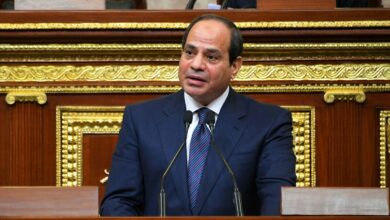
Egypt Says It Will Resort To United Nations Security Council Over Nile Dam Issue
Egypt’s Foreign Ministry on Monday hinted that the government will resort to the United Nations Security Council to prevent Ethiopia…
Read More » -
Egypt
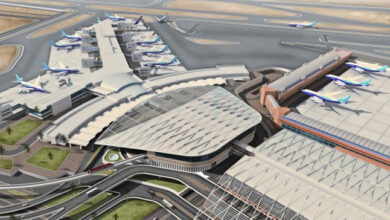
Egypt Government To Gradually Resume International Flights From July 1
The Egypt government on Sunday announced it is going to reopen all its airports for scheduled international traffic starting July…
Read More » -
Libya

Pope Francis Appeals Libya’s Warring Parties To Put An End To Ongoing Civil War
Pope Francis on Sunday appealed the warring parties to the Libya conflict to put an end to the ongoing civil…
Read More » -
Libya
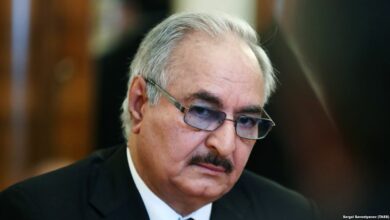
Libya: UN Chief Expresses Shock At Discovery Of Mass Graves In Recently Freed Tarhuna
The United Nations Secretary-General Antonio Guterres on Friday expressed shock at the discovery of mass graves in Libya’s Tarhuna that…
Read More » -
Egypt
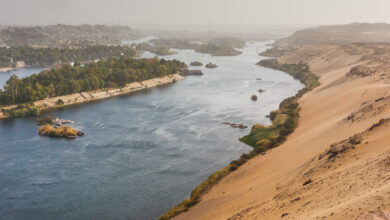
Egypt Says No Significant Progress On First Day Of Nile Dam Negotiation Talks
Egypt’s Ministry of Irrigation and Water Resources said on Wednesday that the first meeting among the irrigation ministers of Egypt,…
Read More » -
Libya
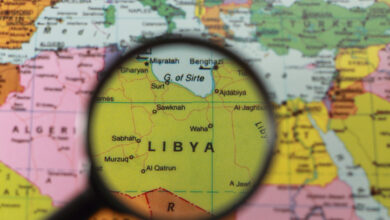
Libya: European Union Calls Out Both Parties To End Military Operations Immediately
The European Union on Tuesday urged both the parties involved in the Libyan conflict to immediately end military operations in…
Read More » -
Tunisia
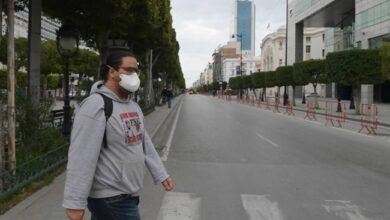
Tunisian President Kais Saied Lifts Coronavirus-Related Nationwide Curfew
Tunisian President Kais Saied on Monday ordered lifting of a nationwide curfew imposed in March to contain the spread of…
Read More » -
Libya

Libya: UN Welcomes Restarting Of Ceasefire Talks By Libya’s Warring Parties
The United Nations mission to Libya on Monday said the warring parties to the ongoing war in the country have…
Read More » -
Egypt
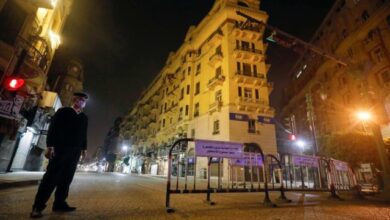
Egyptian Government Changes Night Curfew Timing As Coronavirus Cases Surge
The Egyptian government on Sunday announced a change in the night curfew timings as it recorded new highs in the…
Read More » -
Algeria
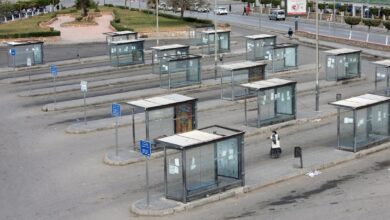
Algeria Extends Coronavirus Lockdown Until June 13 In 44 Provinces Amid Pandemic
The Algeria government on Thursday announced the extension of lockdown from May 30 to June 13, as the number of…
Read More » -
Algeria

Algeria To Continue Using Hydroxychloroquine Against Coronavirus Despite WHO Ban
Algeria will continue to use anti-malaria drug hydroxychloroquine against the novel coronavirus despite the World Health Organization (WHO) suspending clinical…
Read More » -
Libya

Libya: GNA Takes Control Of Three Military bases From Khalifa Haftar’s LNA
Libya’s internationally recognized government on Saturday confirmed taking control of three military bases on the outskirts of the capital, Tripoli,…
Read More » -
Egypt

Nile Dam: Egypt Says Ready To Resume Negotiation Talks With Ethiopia, Sudan
Egypt government on Thursday said it was ready to resume negotiation talks with Ethiopia and Sudan over filling the controversial…
Read More » -
Egypt

Egyptian PM Announces Stricter Anti-COVID-19 Measures During Islamic Holiday
Egyptian Prime Minister Mostafa Madbouly on Sunday announced that the partial curfew in the country would begin at 5 p.m.…
Read More » -
Libya

Libya: UN Support Mission Reports 17 Attacks On Health Centres In Libyan Capital
The United Nations Support Mission in Libya (UNSMIL) on Friday said seventeen attacks on hospitals and health facilities have been…
Read More » -
Algeria
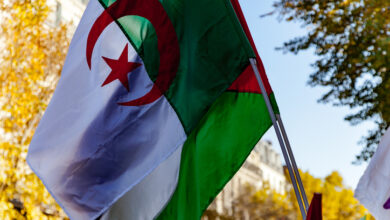
Algeria Government Extends Coronavirus Restrictions By 15 Days Until End Of May
Algeria’s Prime Minister Abdelaziz Djerrad on Tuesday said the government has decided to extend measures aimed at restricting movement by…
Read More » -
Libya
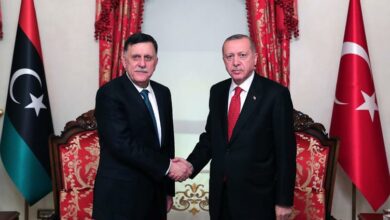
Turkey Warns Libya’s Khalifa Haftar Against Attacking Its Diplomatic Missions
The Turkey government on Sunday warned Libyan strongman Khalifa Haftar against attacking Turkish interests or its diplomatic missions in Tripoli…
Read More » -
Libya

Libya: Turkish Foreign Ministry Says Haftar Wants To Establish A Military Dictatorship
The Turkish Foreign Ministry made an appeal to the international community to respond to Libya’s eastern commander Khalifa Haftar’s move…
Read More » -
Tunisia

Tunisian Government To Partially Relax Lockdown Measures Starting Next Week
The Tunisian government on Wednesday announced it will begin relaxing the coronavirus lockdown starting May 4, reported Reuters. The measures…
Read More » -
Egypt

Egypt: President Abdel Fattah Al-Sisi Renews Long-Running State Of Emergency
Egypt’s President Abdel Fattah al-Sisi on Tuesday renewed the long-running state of emergency for the next three months, citing health…
Read More » -
Libya

Libya: Eastern Commander Khalifa Haftar Declares Himself Ruler Of The Country
Libya’s eastern-based commander Khalifa Haftar on Monday said his Libyan National Army (LNA) has accepted the mandate of the Libyan…
Read More » -
Algeria
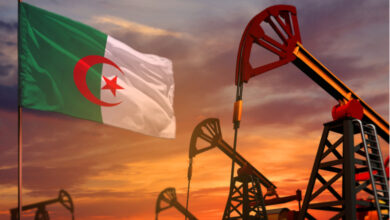
Algeria: Energy Minister Arkab Says Proven Oil Reserves At 10 Billion Barrels
Algeria’s Energy Minister Mohamed Arkab on Sunday confirmed the country’s proven oil reserves are currently 1.34 million tonnes, or 10…
Read More »

